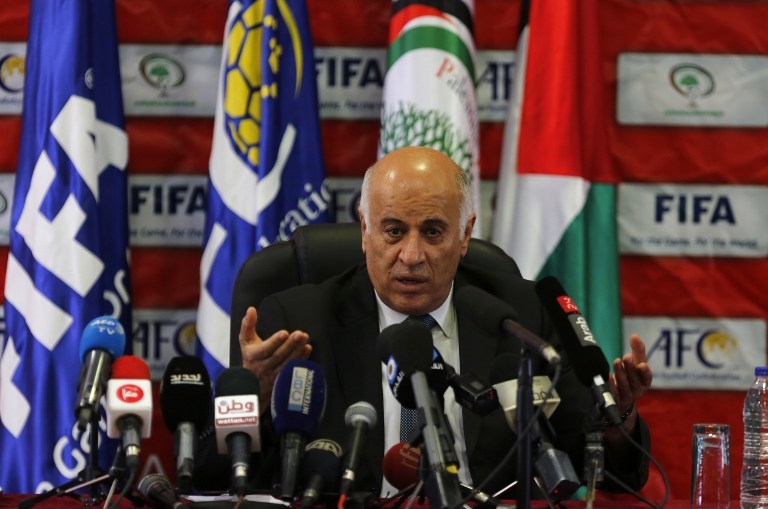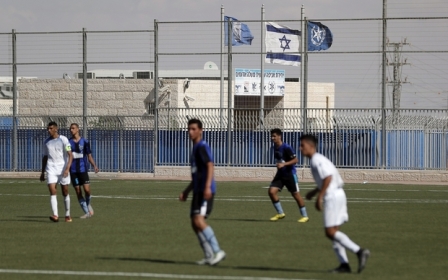Palestinian football chief threatens court action over settlement clubs

The head of the Palestinian Football Association (PFA) has threatened to go to the world’s top court for sport unless world governing body FIFA takes action against Israel over clubs based in the illegally occupied West Bank.
FIFA’s monitoring committee for Israel-Palestine met for seven hours in Zurich, Switzerland, on Tuesday to discuss the issue but failed to reach any decision, prompting PFA President Jibril Rajoub to suggest that the matter may need to be resolved by the Court of Arbitration for Sport (CAS).
The case relates to six clubs which are based in illegal settlements but play in the Israeli lower divisions.
According to FIFA rules, clubs affiliated with one member association cannot play on the territory of another member association without the latter’s or FIFA’s consent.
The PFA is a FIFA member and stages its own league in the West Bank and Gaza.
Israel argues that the presence of clubs in settlements is a political matter that should not involve FIFA.
The PFA has also complained to FIFA about restrictions placed by Israel on the movement of Palestinian players.
Speaking after Tuesday’s meeting, Rajoub said Israeli officials had not come up with any serious argument.
“I don’t think there will be any agreement,” he said. “If they are not going forward, we can go to the CAS. We will not give up. We will never accept any compromise.”
FIFA had urged all parties involved in the dispute to attend Tuesday’s “crucial meeting… with a constructive spirit in order to find solutions” and FIFA President Gianni Infantino pledged to make a resolution a priority earlier this year.
The next opportunity to resolve the matter is expected to come at a meeting of FIFA’s council in January.
Tokyo Sexwale, the chairman of the FIFA monitoring committee, is also due to meet Israeli Minister of Culture and Sport Miriam Regev later this month.
This article is available in French on Middle East Eye French edition.
Middle East Eye propose une couverture et une analyse indépendantes et incomparables du Moyen-Orient, de l’Afrique du Nord et d’autres régions du monde. Pour en savoir plus sur la reprise de ce contenu et les frais qui s’appliquent, veuillez remplir ce formulaire [en anglais]. Pour en savoir plus sur MEE, cliquez ici [en anglais].




